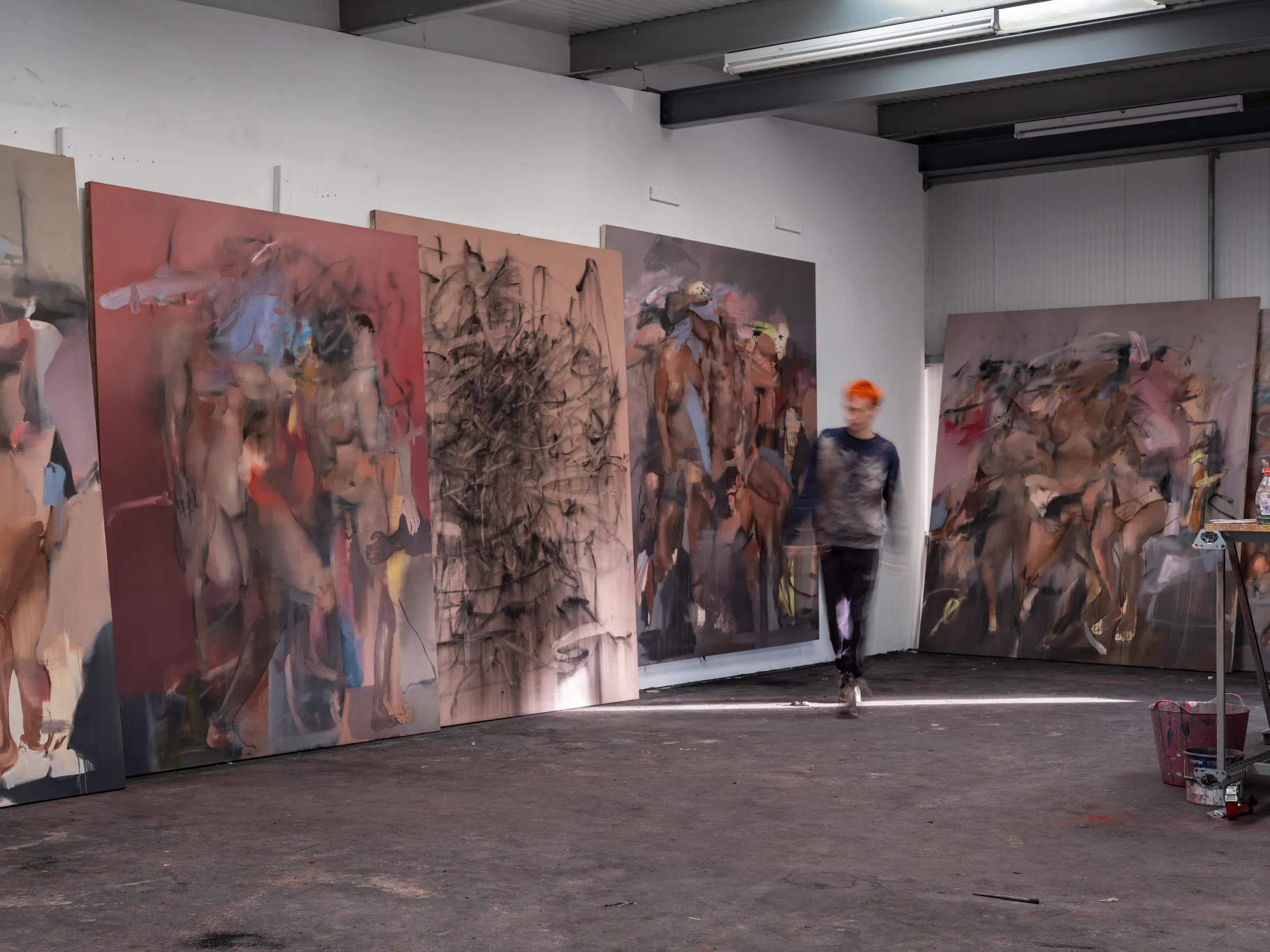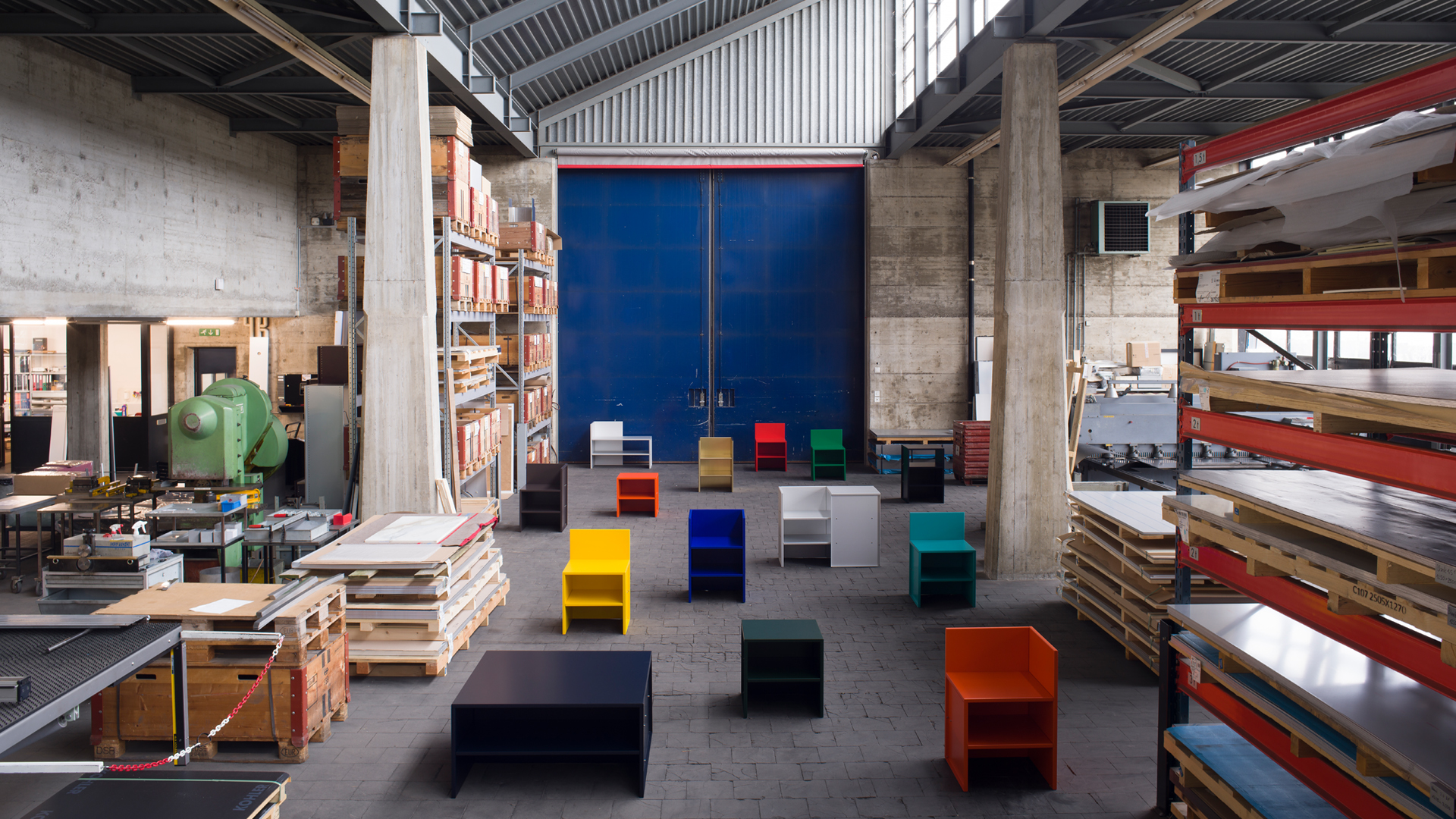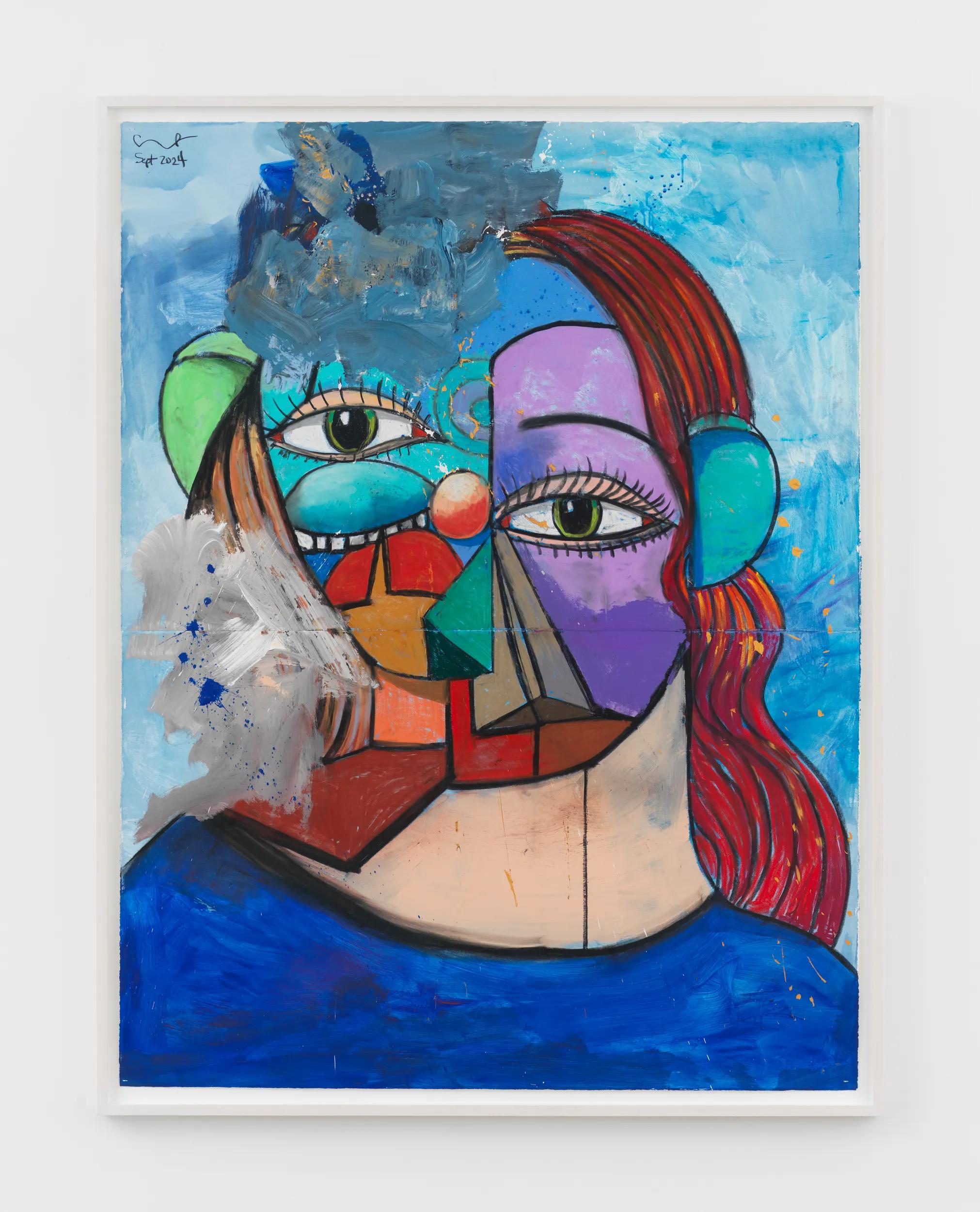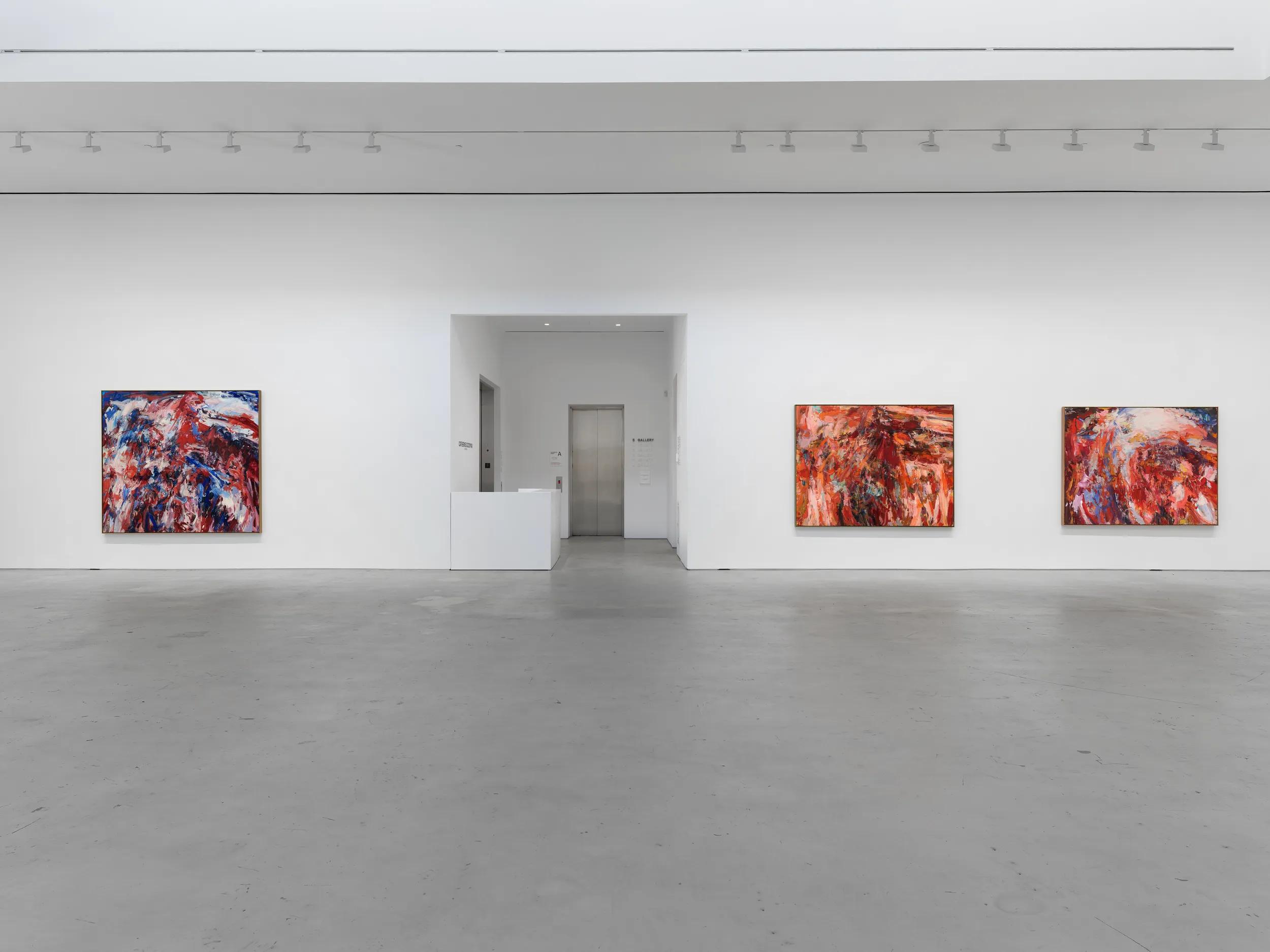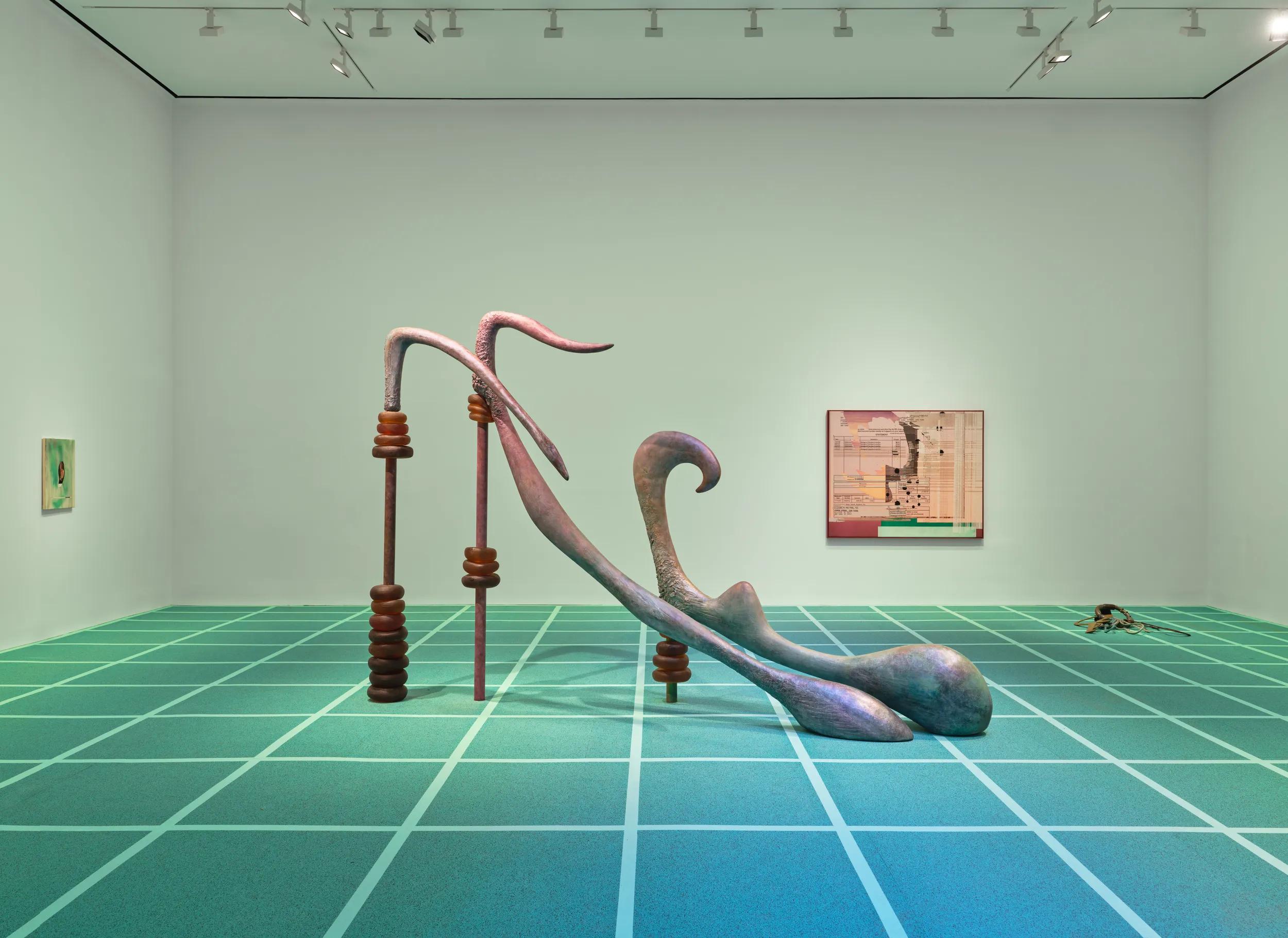
Jakub Julian Ziolkowski
30 August - 11 October 2008
Zürich
Jakub Julian Ziolkowski’s exhibitions resemble hothouses run amok, laboratories brimming with bizarre invention. Individually compelling, when seen together, his works paint a fictive universe bristling with narrative and detail. Motifs swarm into each other, cross-germinating in hallucinatory multiplication. Ziolkowski’s interrelated pieces ultimately understand everything as viscera, tangled up within the squalor and complicity of the human body. His imagination is filtered through a kaleidoscope of references — from the geometries of modernist abstraction to James Ensor’s grotesque allegories, via Guston’s cigarette laden dystopias and Bosch’s exquisite visions of heaven and hell. Displaying feats of stylistic acrobatics that recall Picabia’s wit and iconoclasm, Ziolkowski’s pictures are battlegrounds in which graphic sophistication vies with irreverence, pitting art historical fluency against a rapacious, technicolor id. Yet, for all their referencing, his paintings describe a highly personal world that is populated by a familiar cast of characters — of pot plants, skeletons and coiled up serpents — who cavort in front of shower curtains and interiors hung with assortments of the artist’s previous works. Ziolkowski has referred to these fictitious inventions as 'my friends' and they appear in his works again and again as though they exist autonomously. At Hauser & Wirth Zürich, Ziolkowski shows works in two galleries. In the first are new oil paintings, large and small, all made over the last year. Oesophagus (2008) sets the scene. It features a giant gut that lies engorged and contorted across the two-metre-long canvas like a boa constrictor, over-fed with boluses of skulls and boggle-eyed faces. Volcanoes smoke cigarettes, a yellow sky fizzes with flies and wormy periscopes protrude from the ground, eyeing, like the viewer, the excess all around. Portrait (2008) depicts a head as a site of criss-crossing patterns and emblems at once suggestive of transport networks, pulsating arteries or scrambled entrails. At times in this work, Ziolkowski’s looping painted line becomes the black and white route of a tarmacked road, morphing suddenly into a pair of tapered legs with outrageously protruding lips. Such resemblances run through all these paintings, linking unlike things. The second gallery is a room within a room, a kind of kunstkamera filled with curios. On a glass-topped table is a forest of small, figurative sculptures, presenting a lattice of forms. Around them delicate panel paintings are pinned to the walls, with a wooden stool in attendance for the viewer to better examine the works. Similar stools and sculptures are featured in the paintings and the rooms they depict become the one they’re in. Two and three dimensions, experience and fiction, refer to and replicate one another, so that the figments of the artist’s mind obtain concrete existence. This realism is important to Ziolkowski and brings with it emotional implication: "I sent the protagonists to a pleasant or unpleasant environment, to joy or to tears," he has said. "I explain it to myself: this is not my problem, but yours, you are 'there'; and I am on the other side, and here — unfortunately — it isn’t very nice either. It’s not the paintings that are scary to me, but life itself." Jakub Julian Ziolkowski (born Zamosc, Poland, 1980) trained at the Jan Matejko Academy of Fine Arts, Faculty for Painting and Drawing, Krakow. He has had solo exhibitions at F.A.I.T. Gallery, Krakow ('Demi Volte', 2007), Hauser & Wirth London (2006), Foksal Gallery, Warsaw (2005) and the Academy of Fine arts, Krakow (2004). He was recently included in the group shows 'psyche' at Galerie Dennis Kimmerich, Düsseldorf and 'Schüttelreime' at Office Baroque Gallery, Antwerp (both 2008). He lives and works in Krakow.
Installation views


Current Exhibitions
1 / 12




















